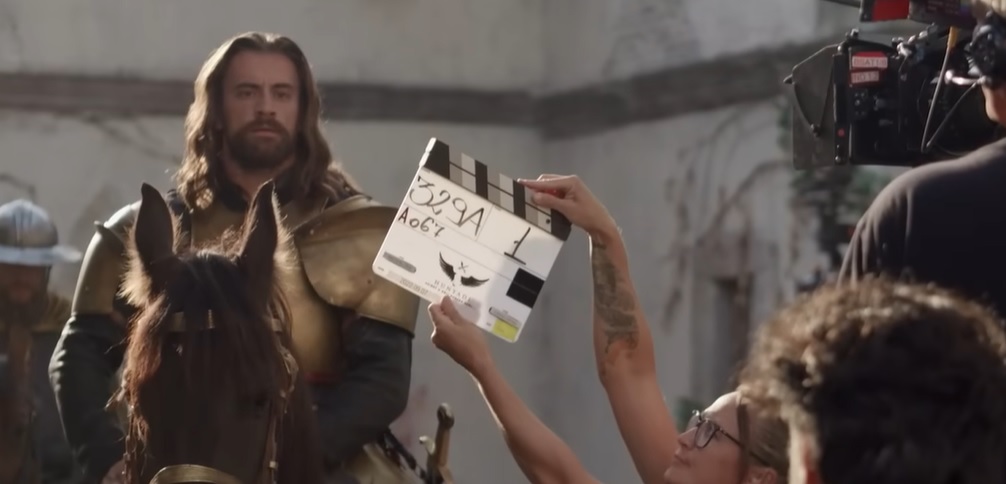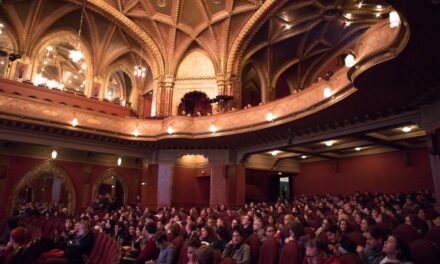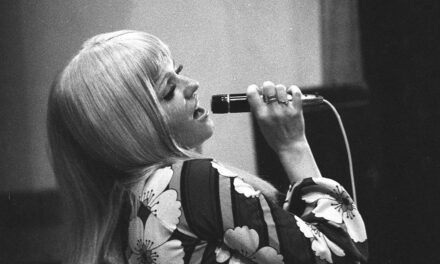For whom the bell tolls - producer Robert Lantos would have given this title to the television series that Governor János Hunyadi XV. immortalizes his glorious military deeds of the 19th century. But to his greatest regret, Hemingway had already stopped this, so the working title of the work became: Rise of the Raven, freely translated: the rise of the Raven.
The title appears consistently in English in all voice-overs and previews, indicating that according to the creators' intention it is a production intended for the international market, even if TV2 is expected to be the first distributor, but Austrian and Slovenian television stations also have an option for the broadcast of the 10-part series.
According to Lantos, the production is extremely important in the Christian world, as he said :
"All over the world, the bell has rung at noon every day for more than five hundred years. No one outside Hungary knows why. Twelve years ago I didn't even know. After that, they will know what happened in 1456, which changed the fate of Europe. This series depicts a person's entire life from childhood. This is a universal topic, but here we see it through a Hungarian lens."The film adaptation of Mór Bán's novel strives for historical fidelity as a large-scale international production. Actors from different nations take part in it, Hungarian, Italian, Serbian or Turkish artists portray their characters in their own languages.
Robert Lantos said this about the film:
"Most of the events take place in Hungarian. When it comes to Italian characters, Serbs or Turks, they are played by local actors in their own language. There will be subtitles where necessary, and in some countries the whole thing will be dubbed. We are making this production for the world, not just for Hungary. In order to be able to export, you have to approach it in such a way that you can compete with the productions that the whole world sees."Robert Lantos, as can be seen from his interview with Index, has been dealing with the topic for a long time. The writer János Bán (Mór Bán) already visited it with the first book of the so far 12-part series of novels, and several screenplays were prepared about the battle of Nándorfehérvár itself. Perhaps it is fortunate that time has matured the idea, because this way ammunition for a complete series has already arrived.
There is little knowledge in the world about how gloriously Hungary stood up to the Muslim cataclysm that threatened Christian civilization in one period of history.
There are also uncertain ideas about where this small country, which was founded in the 15th century, is located. century and the 600 years before that, it was one of the most powerful European kingdoms. The rise of János Hunyadi from Transylvania is also due to the fact that he was an integrative personality, since, as the writer says:
"...I don't mean that because of his obscure origin, the Serbs consider him a Serb, and the Romanians consider him a Romanian, although this very clearly shows that almost every neighboring nation wants to consider him as their own. Rather, I consider his person to be a common denominator in the sense that soldiers of many nations - Serbs, Romanians, Croatians, Czechs, Poles - fought in his army, and then also in Mátyás's army.
János Hunyadi represented Hungarian interests with all his heart, but since these often coincided with the interests of the peoples living with us due to the great common enemy, the international nature of the force rarely caused a problem."The film plan - which is of course more than a plan, as it has been filmed since last year - focuses on this.
How important it is to show, after so many stormy centuries, that finding and representing common interests is the only thing that everyone in Central Europe, from the Baltic Sea to the Adriatic, from the Eastern Alps to the Black Sea, is in the interest of fighting for. Mór Bán saw this brilliantly and vividly and authentically recalls the changes in the political, military and human aspects of the era in the light of joint successes or failures, but also the rise of the region.
Unfortunately, the XVI. century, our next 500 years are mostly overshadowed by the fight against each other, oppression, the loss of the independence of the homeland, with huge historical losses. However, the flashes of Hunyadi's glorious ability to fight and virtue, which appeared in the form of freedom struggles, illuminate our national peaks and represent strength and hope for the rise. given to our paper, Mór Bán says:
"Every nation has a basic need to have a balanced attitude towards its past. The Hunyadi series also tries to contribute to this, warning and reminding the reader that there are plenty of proud periods in our history."
The further message of the novel and the film is that the peoples living here are "sentenced" to cooperate, since new, radical ideas can come at us from anywhere: from fratricidal war to globalism. First of all, of course, it would be necessary to "finally sort out our common affairs."At noon, bells are rung around the world. Even today, the memory of the victory in Nándorfehérvár reminds us that - when the famous American writer is mentioned - you can never defeat a man.
And don't ask for whom the bell tolls: it tolls for everyone, for the whole world!
The project is roughly half-term, and TV2 is expected to broadcast the episodes from September 2024.
Featured image: YouTube













